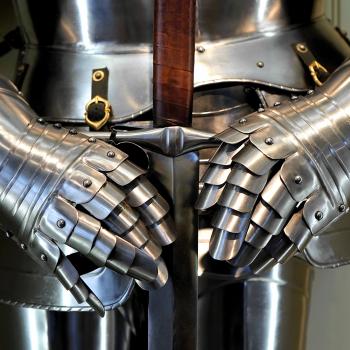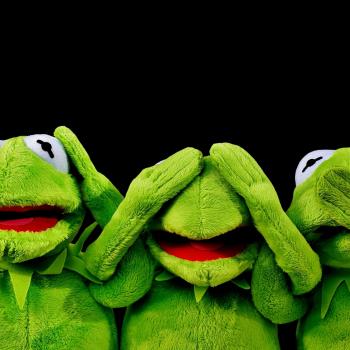To Train Up A Child, chapter 5 part 4
We’re still in the chapter called “the rod.” Last week we learned that children want to be “whipped,” and this week and the two following we will learn more of what Michael means by that.
SELF-LOATHING CLARIFIED
For clarification, I will give my definition of “self-loathing.” In the extraordinary ignorance of modern psychology, there exists the assumption that man’s major problem is “not loving himself.” This comes from a failure to understand the association of the emotion of self-loathing, which comes from guilt, with the supreme motivation of self-love.
According to Michael, self-loathing and self-love go hand in hand.
By creation, we naturally love ourselves. We think in terms of what will benefit us. “For no man ever yet hateth his flesh; but nourisheth and cherisheth it (Eph. 5:29).”
By nature, every human values righteousness and expects it of himself. To not live up to your own standards is to experience self-condemnation (conscience) and to suffer the pains of guilt. The human spirit, given by God, comes equipped with a permanent, resident, divine judge (the conscience).
The higher one values his own good (loves himself) the greater his own despising (which is guilt) when he fails to achieve his goals of right doing. The subsequent self-loathing is nothing but self-rebuke for failure to benefit the person he loves the most—HIMSELF.
When someone has goals and fails to achieve them, Michael says, the automatic and natural result is self-loathing. I don’t buy this. Disappointment, yes, but self-loathing? Yes, for some people not accomplishing life goals or succeeding in life can lead to depression. Is depression self-loathing? I’ve never experienced it myself, but that might be accurate.
But where exactly is Michael taking this?
A child or adult who is self-loathing is, due to his self-accusing conscience, hating his own particular state or lot—precisely because of self-love. The more one loves himself, the deeper the self-loathing. If one truly hated himself, he would find great satisfaction in the negative things that come upon him. When a child is self-loathing, he is damning himself for known violations of conscience and failure to live up to his own standards.
Again, the guilt demonstrates that by nature the child innately knows he deserves punishment for his moral failure.
Oh I see, this is where. Again, “the more one loves himself, the deeper the self-loathing.” Sorry, but no. And why the assumption that negative things come to a person? Most people have a mixture, sometimes having negative things happen but more often having positive things happen. Some people are extraordinarily unlucky, but that is not the norm.
But what is really starting to bother me here is this assumption that children are self-loathing, and that when they are self-loathing they are that way because they know they’ve done wrong, and failed to live up to their standards. Some children suffer from depression, which is the closest I’m coming up to a child experiencing “self-loathing,” but those children need counseling and affirmation, not punishment. But then, that would be “the extraordinary ignorance of modern psychology” Michael was talking about.
GUILT
Therefore, toward understanding the nature of a child, a knowledge of the presence of guilt is essential in the application of chastisement. A spanking (whipping, paddling, switching, belting) is indispensable to the removal of guilt in your child. His very conscience (nature) demands punishment.
And here we have it. Children feel guilt when they do wrong, and what they need to absolve that guilt is “whipping, paddling, switching, belting.”
Most psychological problems are rooted in guilt. Guilt only occurs where one honestly judges himself to be worthy of blame. One may inappropriately be convinced of blame, but the guilt is nonetheless self-incrimination.
Okay, now this is toxic.
Parents who try to shame or humiliate their children into right behavior will see the power of a guilty conscience to curb some actions. But obedience thus rendered will only deepen the false guilt, putting the child further out of touch with true repentance and healing.
Again Michael points out things I agree are bad parenting tactics without apparently understanding that it is possible to see these tactics as a problem and still parent in a way eons different from the way Michael parents.
Guilt is never, in itself, restorative. That is, it does not tend toward less blameworthy actions. On the contrary, the guilty soul is a slave to every temptation. Guilt puts one out of touch with the normal restraining factors. The despair of guilt abolishes motivation toward right doing. The anguish of failure lowers expectations. Guilt lowers self-esteem to the point where one does not expect to do other than fail. This reality has caused the modem psychologists to view guilt itself as the culprit. To address the guilt is like dealing with the pain of a toothache, but not the tooth.
Those who suffer the consequential guilt of their misdeeds are often seen inflicting pain or suffering upon themselves. This self-abuse is an unconscious attempt to “pay the fiddler.” The unwritten common-law of retribution pervades all of man’s thinking. Regardless of the age, religion or lack thereof, education, or philosophy, all intuitively know that wrongdoing deserves and can expect punishment. This law is assumed even by those who give their life to denying it. With the first awakenings of consciousness, a child understands this to be the case. It remains a basic presupposition of life.
In sum, people who violate their consciences feel guilty, and that makes them miserable. But the solution to guilt is not to try to try to bring your actions more in line with your morals or to move to a less restrictive moral system but rather to receive punishment, because guilt cries out for punishment. Given the reference to cutting, is punishment the solution to depression, too?
The guilt burdened soul cries out for the lashes and nails of justice. Your child cannot yet understand that the Creator has been lashed and nailed in his place. Only the rod of correction can preserve his soul until the day of moral dawning. That is why the soul of man never rests until the conscience has been pacified by a believing look at the bleeding, crucified, substitute of the Lamb of God. Guilt is the law’s chief witness against the sinner. Guilt is the bars that enclose the damned in the eternal suffering of their sins. Like a zealous prosecuting attorney, the conscience will not drop its case until it is sure that justice has been done.
I observed a small child who, upon being caught in a misdeed, turned her backside to the parent, pulled her diaper down, and gave herself three slaps on the bare bottom. The offering, though cute, was not accepted.
What. What? What?!
First of all, what in the world is this “only the rod of correction can preserve his soul until the day of moral dawning” bit? I have never seen that in the Bible, and I’m pretty sure a lot of Christians would consider it heresy. And that bit about a child giving herself her own spanking? She’s not doing that because she wants it, Michael. She’s doing that because she hopes that by hitting herself she can convince her parents not to hit her. That’s not “cute,” that’s a cry for help.
I was going to go on, but I am going to have to call it here, because I just can’t even.
The basic gist of this section appears to be that violating your conscience or falling short of your goals leads to guilt and self-loathing, and that the solution to these feelings is punishment, because punishment absolves the guilt and self-loathing. Here’s a question, though—if that is the case, then why can Christ mankind’s punishment on himself? Wouldn’t mankind still feel guilt and self-loathing given that they have not themselves been punished? And if Christ’s punishment is enough, why can’t a parent spank themself when a child does something wrong in order to satisfy the child’s guilt? Why is it the child that must suffer? But all of that is incredibly tangential to how terribly problematic all of this is. Michael suggests that things like depression and cutting stem from the self-loathing that comes from guilt, and that the solution is, presumably, punishment. This seems to me to be an incredibly toxic message.
I’m not a psychologist or a therapist, but I’m pretty sure guilt can misfire in all sorts of ways, and I know that Michael is wrong when he says that most mental disorders stem from guilt. For instance, I sometimes feel guilty for causing my parents pain when they refused to let go of me when I became an adult. But I wasn’t responsible for their pain, and that is one thing seeing a counselor has helped me come to terms with. I also felt guilty when I had sex with Sean when we were engaged and not married, even though there was nothing wrong with what I did and I no longer feel guilty about it today. Guilt is sometimes legitimate, but it is also often socially constructed. And mental disorders? Those are frequently caused by chemical imbalances, and that has nothing to do with guilt.
But the point Michael is trying to make is that children need and want the rod because they need absolution for their guilt. This is wrong. Children need affirmation when they do write, correction when they mess up, and loving guidance regardless of what they do. Children do not deserve or need to be whipped or hit with a belt. Do children sometimes feel guilt? Sure! And when they do, it is an opportunity to help walk them through their emotions and create a positive pattern that will serve her well in the future. Does Sally need some form of absolution if she hits Bobby and then feels bad about it? Perhaps. But you know what can satisfy that need? Doing something nice for Bobby to make up for what she did wrong. But if I were to follow Michael’s advice I would skip this entirely and go straight to whipping her. I really can’t think of anything more unproductive—or more inhumane.













